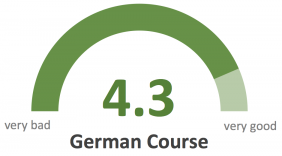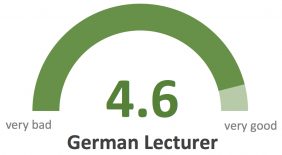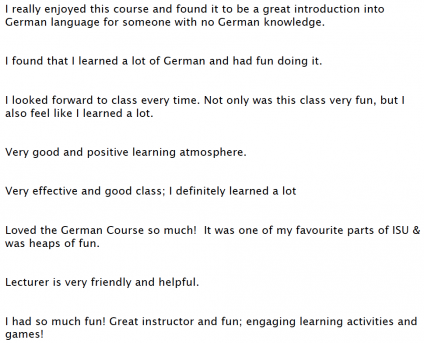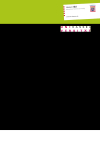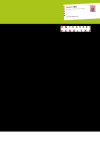Renewable Energy Summer School
The Renewable Energy Summer School as part of the International Summer University at Kassel is a unique short term education program specially dedicated to international students and graduates from engineering and related subjects. In the seminars, we focus on the main issues of combating climate change and introducing the techniques of using energies from renewable resources, which are naturally replenished, such as sunlight, wind and geothermal heat. The summer school also offers a seminar that explores the methods and recent developments in the multidisciplinary field of earthquake engineering. All seminars will be taught by faculty members from the respective disciplines of the University of Kassel and Fraunhofer research institutes.
Academic Program
The Renewable Energies Summer School consists of the following two seminars.
Module: Environmental Engineering and Renewable Energies
20 contact hours and 3 credit points
COURSE DESCRIPTION
The seminar is geared mainly towards students with a technical background, particularly the engineering sciences. This Environmental Engineering course focuses on the specific subject area Renewable Energies.
The class provides the opportunity to learn more about German and European perspectives on energy while covering topics such as wind energy, photovoltaic, geothermal technologies, hydropower and solar thermal technology.
Field trips demonstrate the real life environmental and economic impact of these new and promising technologies.
LEARNING OBJECTIVES
The interdisciplinary seminar is built around a series of lectures concerned with environmental engineering and renewable energies, delivered by professors from diverse disciplines. Students learn from and are inspired by leading academics working at the forefront of their fields. All lectures are additionally attended by tutors who supervise the students throughout the series. These tutors also accompany the students on field trips and help them prepare for the final exam.
COURSE MATERIALS
Introductory recommendation before the course starts: The Global Status Report REN21- Renewable Energy Policy Network for the 21st century: https://www.ren21.net/
All further material will be given during the course.
Excursion to Jühnde Bio-Energy-Village
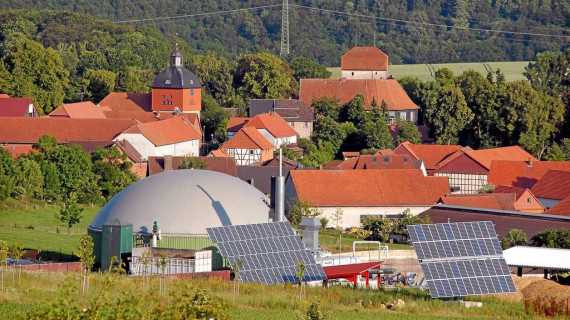
As part of the Environmental Engineering Seminar we will visit the Jühnde Bio-Energy-Village. Jühnde (Lower Saxony) is Germany’s first village to produce heat and electricity by means of renewable biomass (energetic plants in form of silage and wood chips), thus creating a CO2 neutral balance. The biomass, which can be easily stored and is available in continually good quality, can be used flexibly to meet the changing demands of heat and electricity.
Participant Ratings
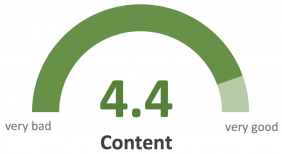
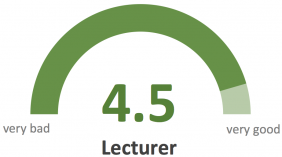
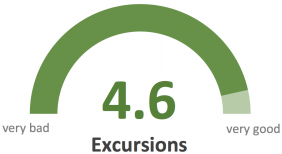
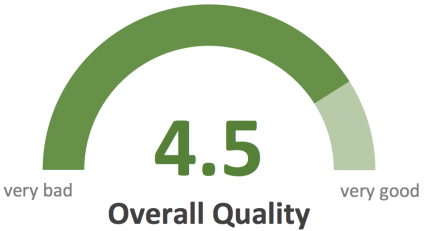
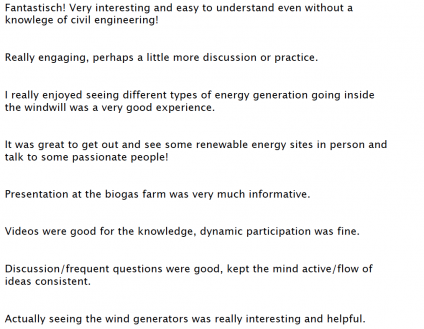
Module: Adaptation Strategies to Climate Change
20 contact hours and 3 credit points
COURSE DESCRIPTION
Adaptation to the consequences of climate change, such as extreme weather conditions and changing rainfall distribution is one of the major challenges facing science and technology. Climate projections indicate a number of challenges we have to confront. This course is intended to provide an overview of adaptation requirements, especially in areas of importance for business and society which stand to be affected by climate change. In particular, the commercial sectors of tourism and health, transport and energy technologies, not to mention agriculture, forestry, and water management, are of major significance.
Problems posed by climate change, with specific reference to the region of North Hesse, will be examined in order to develop and implement possible strategies of adaptation.
LEARNING OBJECTIVES
The interdisciplinary seminar is built around a series of lectures concerned with climate change adaptation strategies, delivered by professors from diverse disciplines. Students learn from and are inspired by leading academics working at the forefront of their fields.
All lectures are additionally attended by tutors who supervise the students throughout the series. They also accompany the students on field trips and help them prepare for the final exam.
COURSE MATERIALS
Introductory recommendation before the course starts: The Global Status Report REN21- Renewable Energy Policy Network for the 21st century: https://www.ren21.net/
All further material will be given during the course.
Excursion to Viessmann
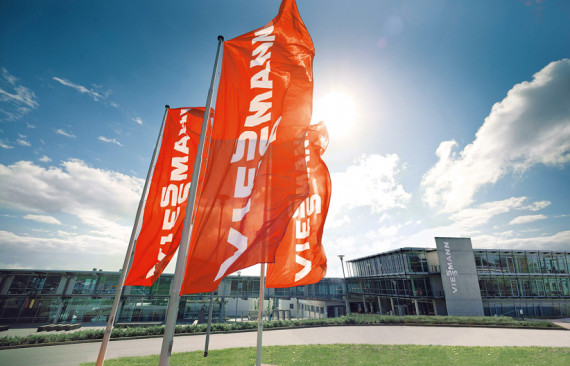
As part of the Adaptation Strategies to Climate Change Seminar we will visit Viessmann, one of the world’s leading manufacturers of efficient, reliable and affordable heating and solar products. Their innovative solutions are simple to install, service and use. Viessmann offers a comprehensive range of German-engineered products, from oil and gas-fired boilers to biomass, solar thermal, hot water heating and more for applications in residential, multi-family, commercial, light industrial, schools, universities, hospitals, municipalities and government buildings.
Participant Ratings
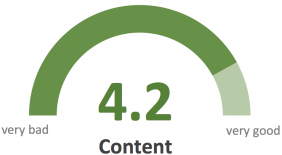
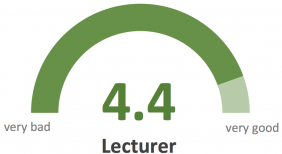
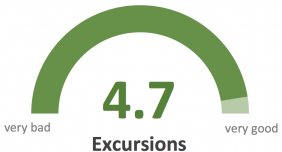
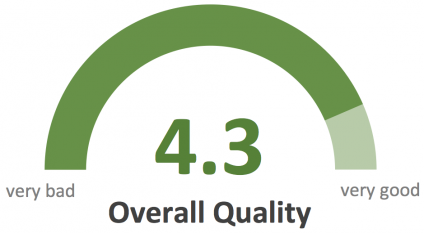
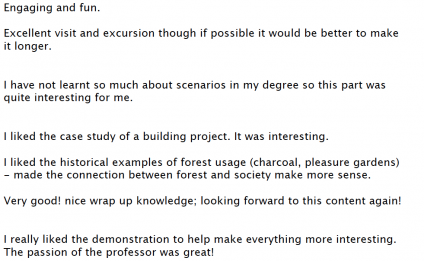
In addition to the two modules you choose, you will also take part in the German language course.
German Language Course
40 contact hours and 4 credit points
German as a Foreign Language
Studying German in Germany and practicing your skills in everyday situations is a very effective way to improve your German.
The Summer School offers German language courses at three different levels - depending on the number of participants and their German language skills. Students will be assigned to the level that best fits their competence.
Our language courses are designed to fit the criteria of the Common European Framework of Reference for Languages (European Language Portfolio). The ISU program offers courses at the following levels: A1 (beginners) and, depending on the level of the participants, A2, B1, B2 and C1. The description explains which language skills you will have AFTER the course [... more Information].
The applied teaching and learning methods are based on a progressive and innovative concept which includes, among others, team work, games, and CALL (computer-aided language learning), etc. Students will study in small groups and in a friendly and relaxed atmosphere.
Our experienced teachers are carefully selected. They are especially qualified for teaching German as a foreign language.
Participant Ratings
